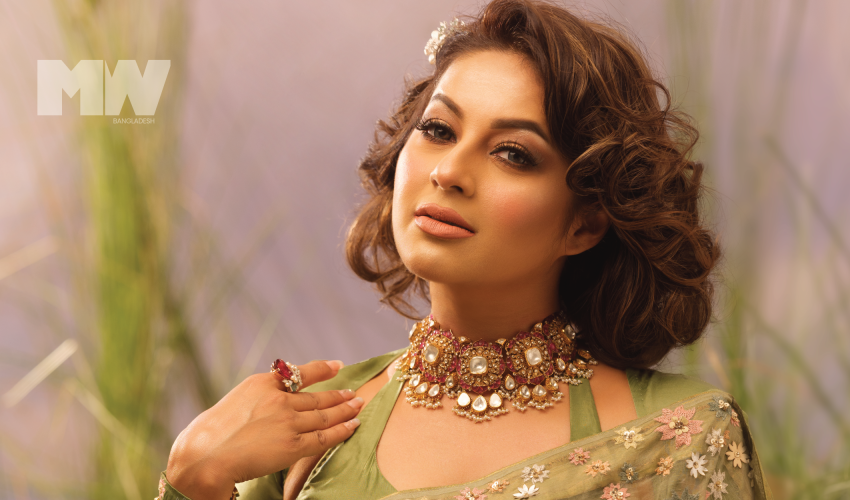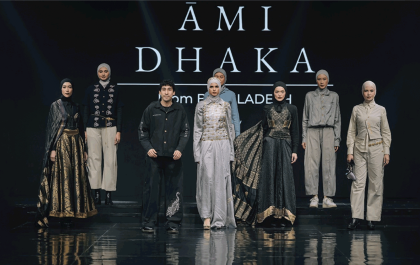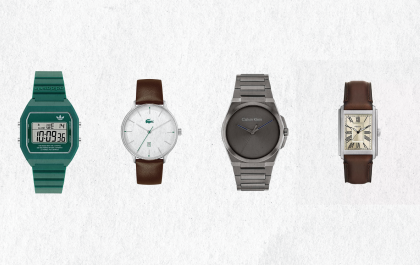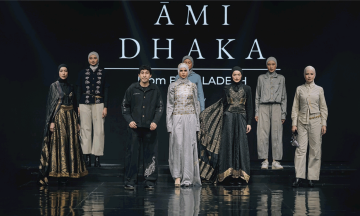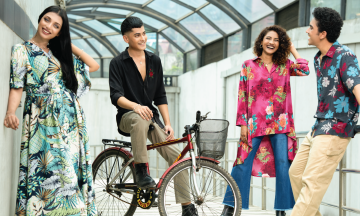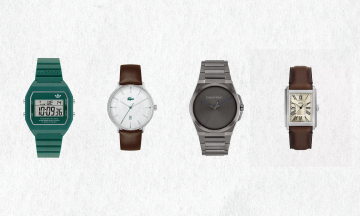Fan favorite Monalisa looks back on her career in entertainment
By Zareen
The heydays of the Bangladeshi entertainment industry in the early 2000s festooned with the commencement of large-scale advertisements, regular shows beloved by our parents, and occasional re-screenings of the evergreen black and white films among others also remained noticeably consistent in providing us with a circle of the existing gamut of the thriving stars of the day. One particular actress, of the lot, who stood out effortlessly for her name and even more so for her smile is none other than Mozeza Ashraf Monalisa.
You’re so like the lady with the mystic smile
Having had her face on posters of a myriad of trending products plastered around most of Dhaka city, the actress was undeniably in high demand for projects on screen – be it for Eid special dramas, Valentine’s Day special dramas, and even your average drama, Monalisa had appeared to stay.
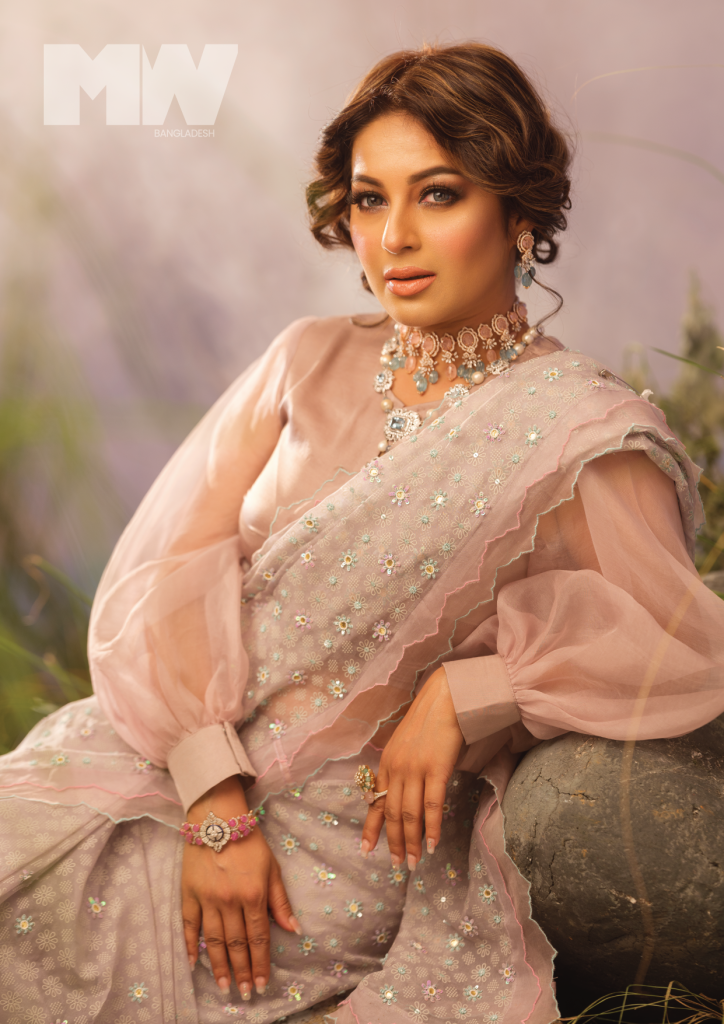
Her burgeoning fame, coupled with her dexterity in setting fashion trends for young adults at the time, accredited her as one of the more prevalent trend-setters alongside some of the other actresses of the time. As for me, and I’m sure for many of us, learning about the secret behind Leonardo da Vinci’s Mona Lisa’s smile during our school days made us particularly remember and eventually become fond of our actress Monalisa and her ever-alluring smile.
At the height of her hard-earned popularity, Monalisa moved to the US. Halting her acting ventures in the country, she left behind audiences who wondered when they would see her next on screen and was off on a mission to discover more about herself and her abilities outside the world of entertainment.
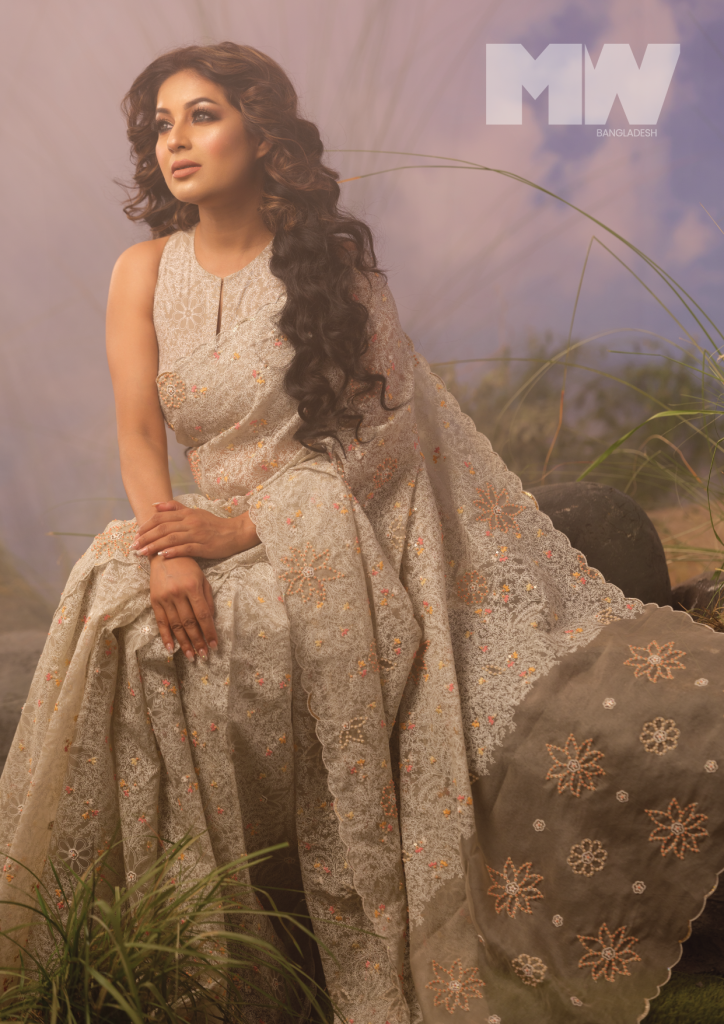
MW Bangladesh recently caught up with the gorgeous actress, presently visiting Dhaka, to reminisce about her sentiments surrounding the industry, and her memories while also learning more about her forthcoming plans.
Now that you are back in your home country, how are you feeling?
I am actually feeling extraordinarily good! From leaving the airport, after arriving in the country, to even getting a chance to attend a formal event – the barrage of welcoming admiration I have been on the receiving end of, has been nothing short of extraordinary. I genuinely thought I might have become a forgotten entity of the past but I was proven wrong. My colleagues and fans showered me with so much adoration that it all felt awesome.
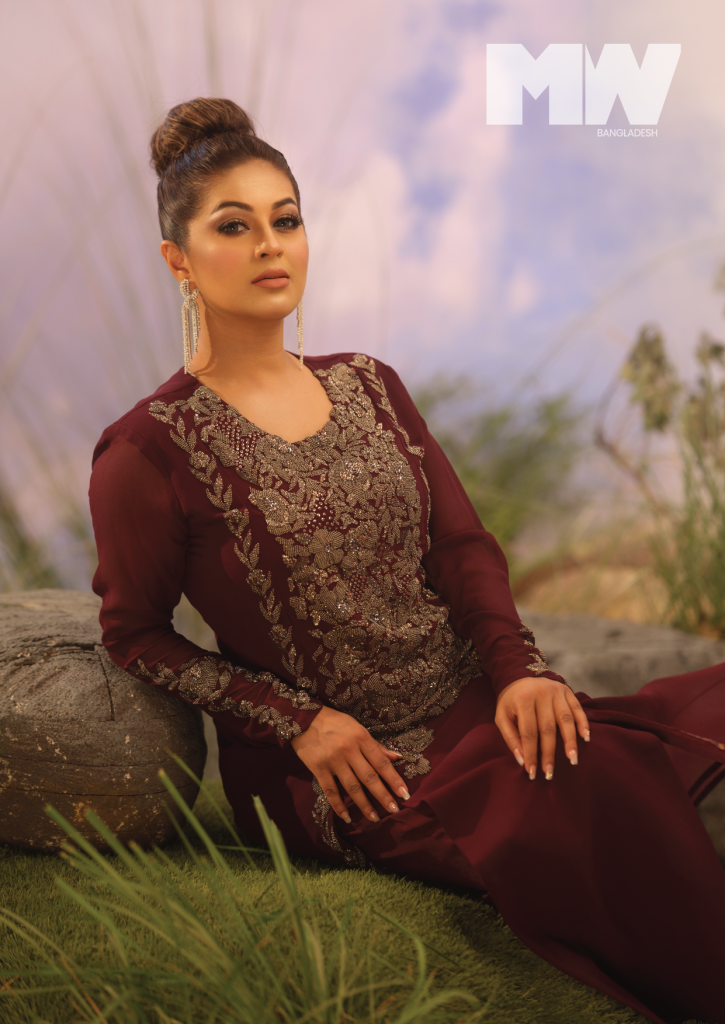
What did you miss most about Bangladesh?
The most notable aspect I missed the most about being here, is the food made by my mother and Bangladeshi food. Sure, the USA also has a range of cuisines, but the intricate diversity of the food available constantly at our disposal here has been something that I missed.
I am also actively exploring the restaurants that are new to me, so much so that I can’t help feeling like I’m gaining weight. The new happening places are providing delicious food! I am also enjoying observing the all-encompassing development Bangladesh has gone through, compared to how it used to be like.
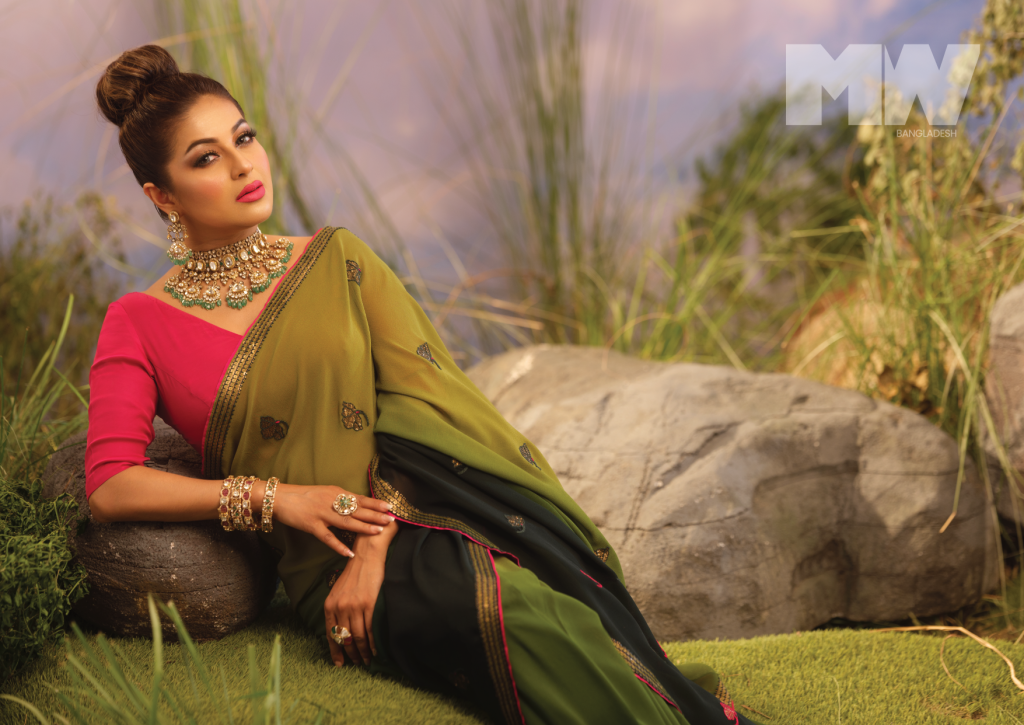
And what did you miss most about acting?
You know, when I was acting here back in the day, my schedule as an actor and a model used to always be packed, whenever I took on projects. I used to film every day, be it for commercials, stage performances, or television dramas and was very accustomed to such a timetable. So the world of lights, cameras, action, and even pack-up used to remain at the back of my mind while living in the US.
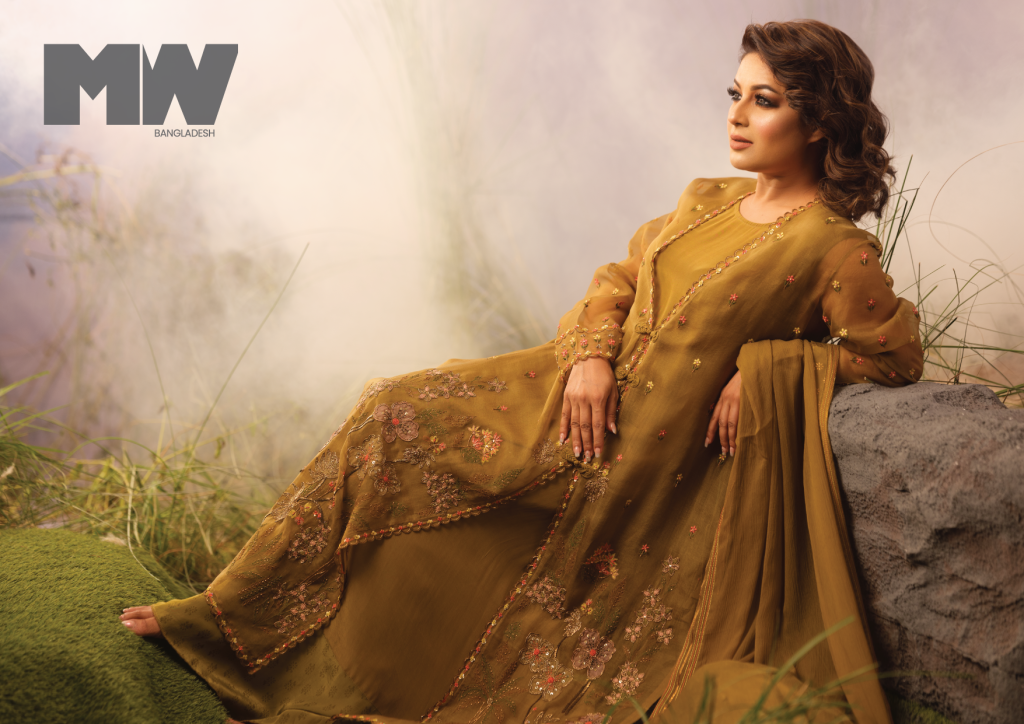
I had to of course take the reins of living my new life with a new profession abroad, but whenever I watched good Bangladeshi content there, I would occasionally miss my active acting life here. I missed the work routine and the relationships I fostered in the film industry here. I still maintain relationships with my colleagues here and when they tell me they miss my work and me, I feel overwhelmed.
You had learned to dance professionally, what became of that hobby? Do you still dance, perhaps?
Yes, I began my dance lessons during my school-going days, at Bangladesh Shishu Academy. I eventually even earned a diploma in dancing from Bulbul Lalitakala Academy. However, I then first got my turn of entering into commercials to subsequently act on television and more notable projects.
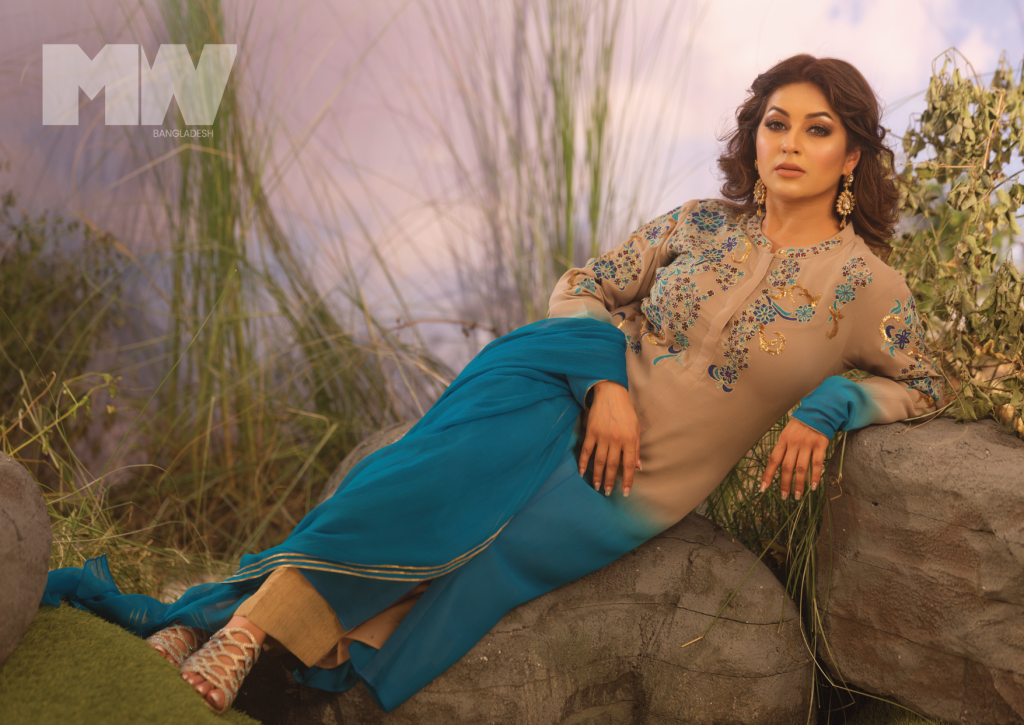
If I come across well-organized programs or festivities in the US involving dance performances then I try to participate as much as I can. Since my cultural practice’s journey began with dancing, I try to not drift away from it. I have also been in talks regarding potential dance performances since arriving here, so audiences might get to see me in an upcoming program or two. Then again, I feel reluctant to participate in programs I don’t wholeheartedly approve of.
How did that big acting break come about?
People around me constantly expected me to be seen in television shows or dramas after my appearances in TV advertisements. Around 1997, my first advertisement was for the brand that used to be called Fair & Lovely. Then came several more brands prior to my momentous Banglalink-based advertisements, which possibly gave me the most recognition. I have had experience working on innumerable advertisements for a diverse range of products which really did get me a whole lot of points for popularity in the industry. My journey toward acting might not have happened if those years had thrived on social media; who knows?
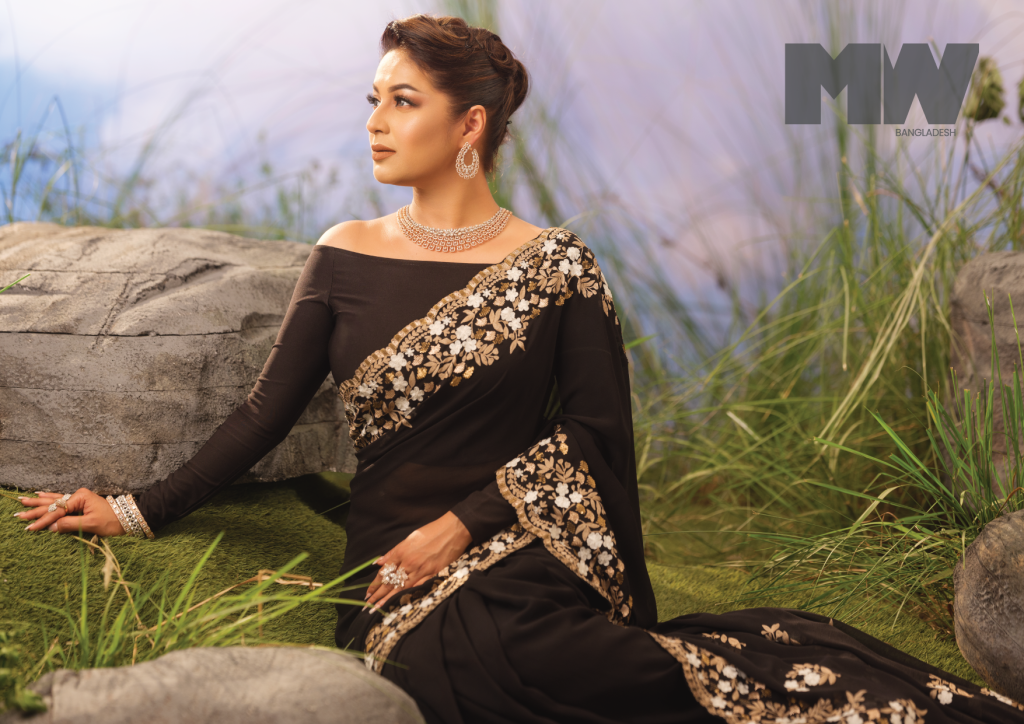
My first drama was the Hanif Sanket directorial Putrodaye starring opposite the likes of Zahid Hasan. Next, I almost immediately landed a role opposite Mahfuz Ahmed. I ultimately worked with the most sought-after actors then and now including Afran Nisho, Apurba, Shajal, Tauquir Ahmed bhai, Joy bhai, Shahed bhai, Sabbir bhai, and almost all the others.
Would you say that the lessons you’ve learned from your acting career have impacted your real life and continue to do so?
Yes, I agree. The art of acting and filming allows us to express humane experiences through stories, right? So, my career in acting helped me learn to associate with people better and become a part of the appreciation that the audience bestow upon me. People still make me feel like I have the ability to touch them in the best possible way when they approach me to convey that they have seen my work, or that they would like to see more from me. I am and have been immensely grateful for this.
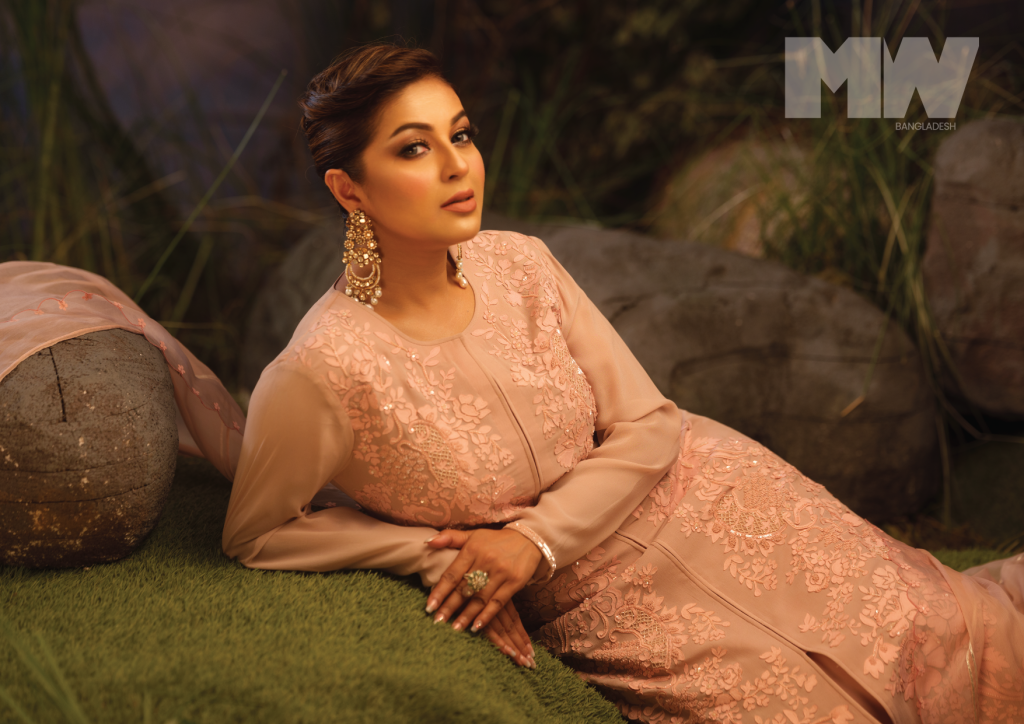
I believe that a person is capable of changing their life if they truly desire to do so. Accordingly, I can safely say that I am doing just that with the accumulation of all that I have learned from life.
Was moving to the US a long-held dream of yours or was it a sudden decision?
Many ask me why I had suddenly chosen to move abroad and I realized that I wanted to learn more to grow more as an individual. I went there to discover what more I could acquire for myself, differently. I might have studied in Bangladesh but today I am pursuing a course as a software engineer so that I can get a job in that sector. Moving to the USA was and has been all for my personal development and that country is the perfect place to be able to do that with the plethora of opportunities it presents.
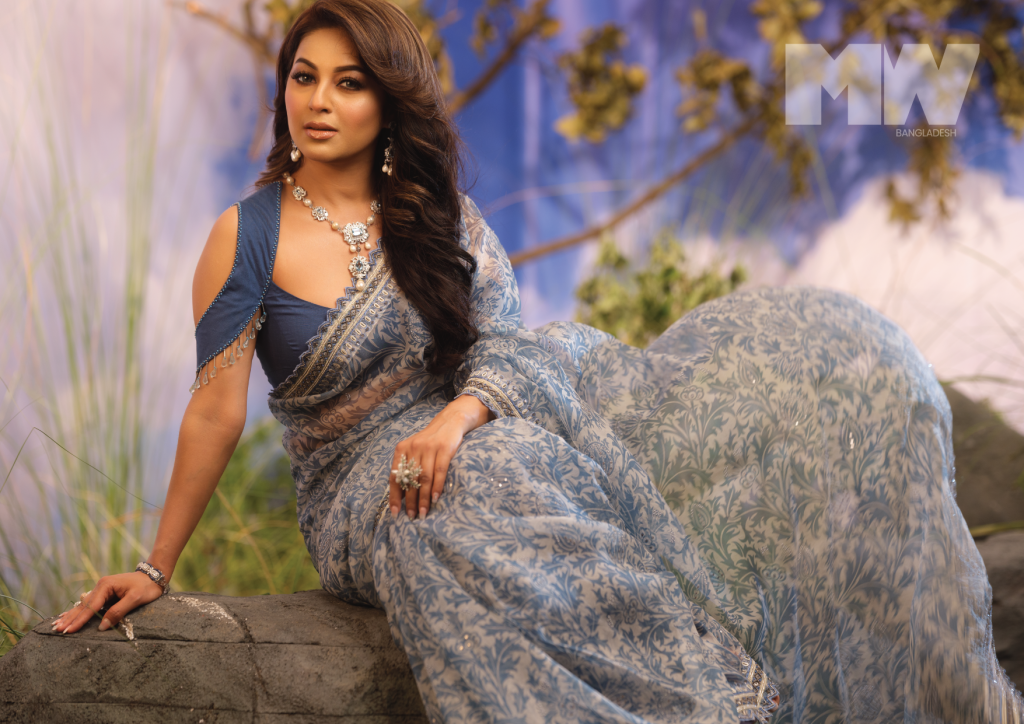
What were you professionally doing in the US all these years?
If I were to speak about my professional transition after moving to the US, I initially found a job as the head of program for Time Television, a local TV channel and once I was able to establish it, I was offered a good position as a senior artist at MAC. I have since been working with big branded companies in the beauty industry as a beauty consultant. I then joined the Italian brand KIKO Milano as an assistant manager. I later moved to Sephora as their skincare lead. I then got promoted to the Japanese brand Shiseido, and then Chanel followed in my portfolio before my final and continuing move to a managerial position at Elizabeth Arden.
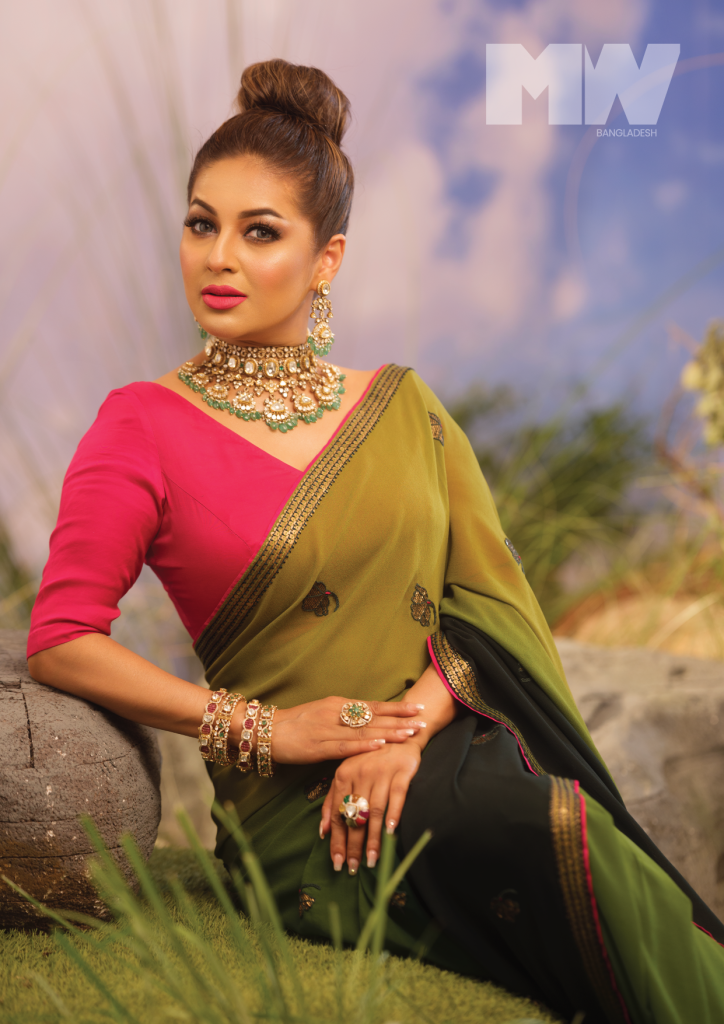
The last seven to eight months have been rather refreshing for me too, because I also have been working as a loan coordinator for a mortgage bank that helps people get loans. I get to help immigrants there with loans for their dreams of owning a home, which makes me feel great. At the end of the day, I am able to invest myself in the work that I like.
What was it like to add a job in finance on top of your beauty industry ventures?
I personally believe that if someone is determined and devoted to honing a certain quality or skill of theirs, then they will most certainly be able to achieve success in their desired objective. When I noticed that I could potentially help people fulfill their dreams by working in this sector, a friend of mine in America further encouraged me to join their firm as a loan coordinator, considering the country has a large Bengali community I could definitely help. It is a market where people, especially immigrants, need help navigating the processes. My years of working in the services industries therefore taught me the ways of building relationships with customers, so that experience was pivotal for me in making my decision. I have also been doing well since joining the industry which further boosts my morale.
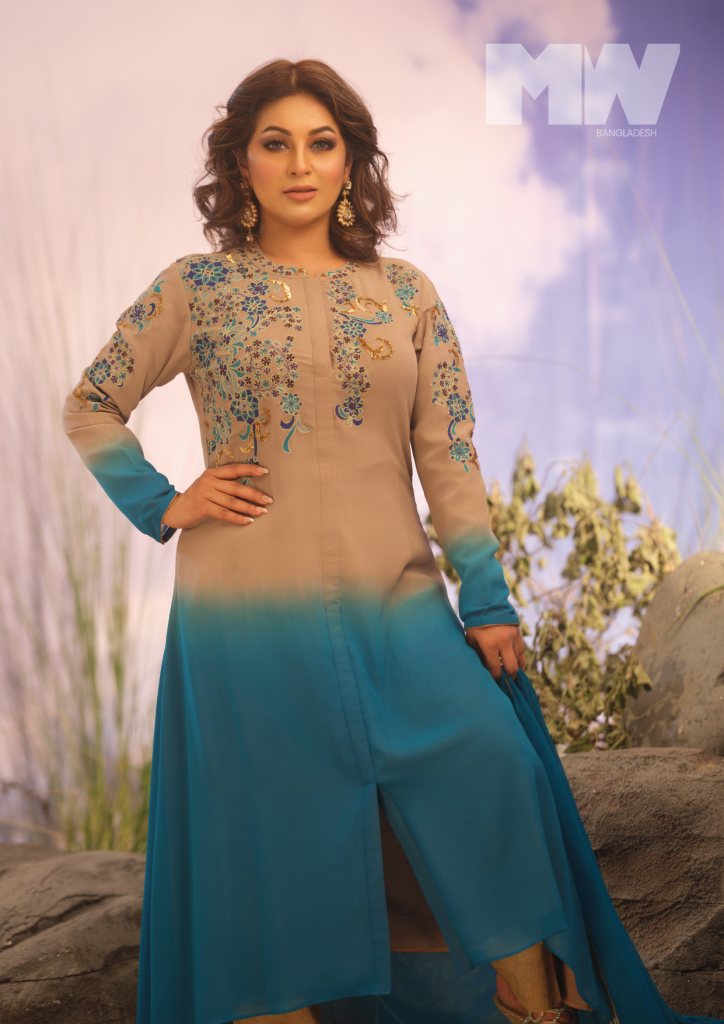
What does it feel like to, albeit briefly, step away from a life of fame and switch to a more ‘normal’ life like the rest of us with regular office hours? Did it require a lot of adjustment?
I am a simple person and my favorite thing to do is to maintain a simple lifestyle. I am introverted and I am a fan of having a private life, which again is something that I try to maintain. I pursue communication with the people I interact with on a daily basis because I don’t think of myself as someone unreachable. I am not some hotshot and all the “fame” that I have received, has been handed to me by the audience.
The fame experienced by the popular Monalisa of the good old days and my current self feels the same to me, mostly because even when I am in New York, Bangladeshi audiences shower me with the same kind of love I used to receive here. Some even travel from other American states to visit me because they consider themselves my fans. A celebrity’s whereabouts, at least in terms of which country they live in, tend to be or become public knowledge so they take the extra measure to express their admiration towards us. These efforts honestly still feel the same to me but aside from that I consider myself a normal person with a normal private life. I do try to prioritize paying attention to those who go the extra mile but I don’t have any reason to think of myself as someone who needs to display or feel pride because of “fame.”
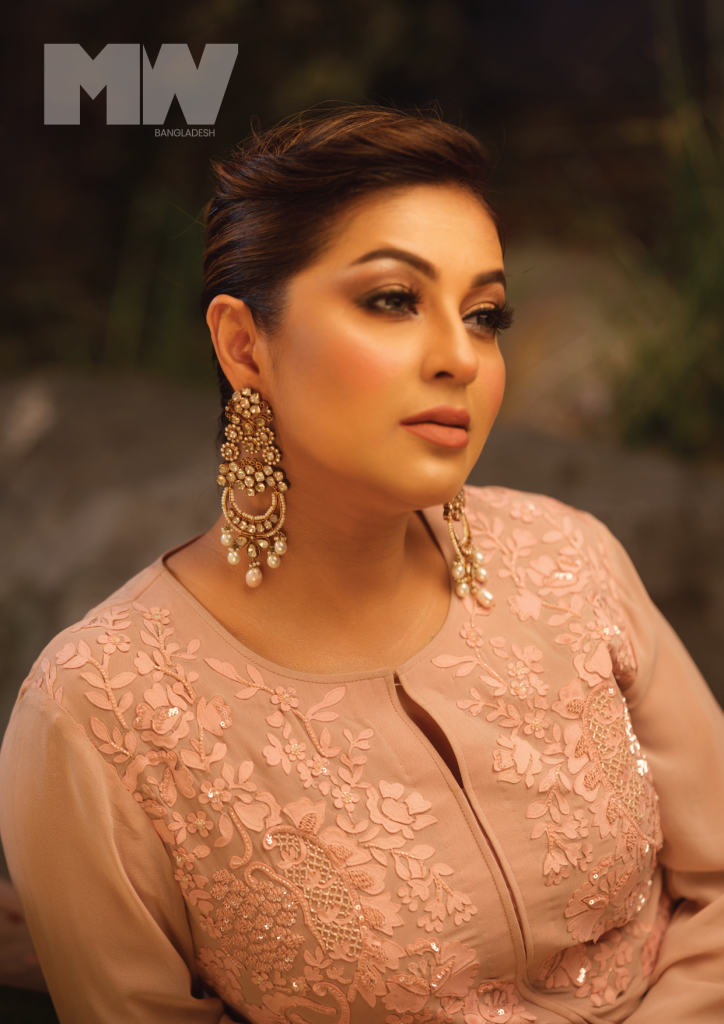
How does a celebrity escape the gnawing grip of pridefulness?
The real lives that we respectively live should give us a good look at what it means to become mature. If someone suddenly gets a lot out of life, it never truly represents what life is really like. Life is hard and one should try to simplify the aspects of life so as not to take oneself seriously. I feel like nothing good comes out of living on the extreme level of things, including fame and life.
My mother, for instance, is a friendly and humble person who has taught me a lot. She was the one who told me that even if I have worked hard to attain the fame that I have, it was ultimately given to me by a large number of people who appreciate me. Thereby it becomes my responsibility to respect them and be grateful to them in return – which is why I try to do something for my fans every year.
A big part of being inspired by a celebrity or being a fan of someone involves what they take away or learn from that personality. On that account, I try to live a mindful life so that even if 10 more girls get inspired by me, I will be able to live with that contentedly.
Is there any particular fan moment that is and will likely remain close to your heart?
I can easily recollect way too many fan moments! Again, those were the days when people could only hear about artists from either news portals or the TV, they could not just simply interact with us through social media. They used to have to go through a lot to manage details about an artist’s delivery to perhaps send letters or gifts. I began working in media while I was still a student, and I remember the boys lining up and creating a crowd. I had to wear a burqa to class. Male fans would send me handwritten letters, which was the most popular means of communication, and sometimes text messages too. People would come from outside the country to interact with me too! In America, my fans would simply send me gifts, during my birthdays as well.
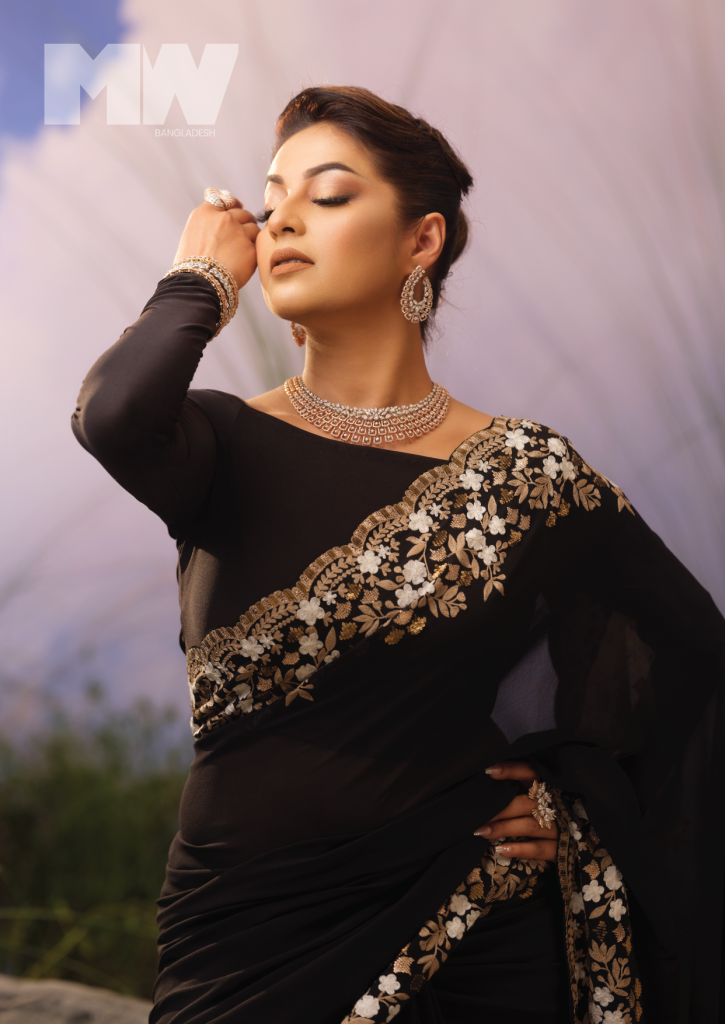
On the flip side, some fans proved to be disturbing because of their exaggerated methods of seeming overly emotional. They simply didn’t understand what it meant to show decorum without crossing the line.
Is there any particular moment while you were on set that you cherish dearly?
I must admit filming days of the past and the present have become vastly different! We had to work exponentially harder during filming, whereas now, the whole process has largely become structured. We actors used to have a lot more to do, we had to fix our costumes and we also had to decide upon the detailed decisions associated with our characters.
Nonetheless, I still remember instances of working with Mosharraf Karim where we would find it impossibly difficult to get back to work because he is such a funny man! Once Shazu Khadem was also there and our entire unit found it difficult to get to work even after half an hour. There was never a dull moment on set with Mosharraf Karim around and because of him, almost everyone would always burst out laughing.
Even memories of pairing up with co-artists like Nisho, Apurba, and Shajal used to be a lot of fun and remain close to my heart. There have been countless such memories.
What do you think of the state of our entertainment industry right now?
I think that the industry has become very rich in terms of technological advancements which I feel extremely proud about. The up-and-coming film-makers, cast and crew of the industry also pay attention to diversifying content and stories being produced. However, if we get to surpass the view count of Bollywood content being watched then perhaps we will be able to reach a truly magnificent stage.
I remember how Hindi TV serials used to be addictive for our mothers and their sisters to the extent that they would ignore Bengali productions. People back then were not in a rush to become self-sufficient either, so the non-working population used to disregard our serials and dramas due to repetitive storylines and patterns.
I did notice that the market of our television dramas needs attention nowadays with the increased focus on pushing content online. Overall, the industry needs balanced growth so that one sector of production does not get left behind. If the new generation feels like it needs to support the sector that is lacking in some way, then it should provide sufficient backing, only then can the industry take its leap forward, together.
People also showcase an inclination to gain instant fame without putting in the necessary work to prove their worth first. So yes, we need to think of more ways to grow and develop collectively instead of individually.
What were some of the recent Bangladeshi productions that you have watched and approved of?
I have noticed some of the latest advertisements which are being beautifully made. Aside from that, I have watched some of the Eid dramas and the films Surongo, Priyotoma, and Hawa. I will definitely be watching the upcoming Toofan.
Have you worked here since your arrival and do you have plans to work on any upcoming projects?
I have just arrived, so to say, but I have already been in talks about potentially joining well-executed projects. I plan to visit Bangladesh frequently to act and since I also have professions that I need to take care of in the US, I will need to divide my time appropriately between the two countries.
Keeping your gap from acting in mind, what does it take for you to get back into the headspace of actress Monalisa?
Firstly, I can safely claim that I used to take noticeable gaps from the screen while I was still actively living here and working in the industry. In a way, I refused to show myself consistently, on screen, because I did not want my audience to get bored of me and my presence. Besides, a large portion of my fans are already used to the fact that I am very selective about the work I choose to partake in.
I also take the gap so that I can personally provide myself with sufficient preparation time for a promising project that comes my way. Incessant work tends to make me bored of my pacing as well, so a break rejuvenates my motivation to proceed with acting. The break moreover allows me to observe work that is being produced across the various entertainment industries in the world.
I believe that artists pursuing creative professions require gaps for their benefit.
What are you looking forward to most, for yourself?
I am still in the learning stage of my current career path, and I hope to achieve my objectives through my ongoing development and applicable learnings while helping people however I can.
- mwhttps://mansworldbangladesh.com/author/mw/
- mwhttps://mansworldbangladesh.com/author/mw/
- mwhttps://mansworldbangladesh.com/author/mw/
- mwhttps://mansworldbangladesh.com/author/mw/




